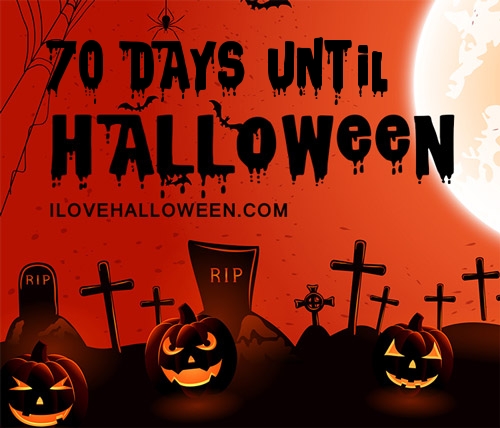Starring: Ric White, Clayton Cheek, Carey Kotsionis, and Doug Moore
Director: Ric White
Rating: Seven of Ten Stars
Most movies that claim to be based on the writings of Edgar Allan Poe can more accurately be described as "inspired by a story from Edgar Allan Poe" or "borrowing a title from Edgar Allan Poe". That is not the case with "Nightmares from the Mind of Poe", an anthology film that presents some of the most faithful Poe adaptations I've come across.
Even the very best of the films adapting Poe I've seen up to this point have only born a passing resemblance to the material they were based on. The Karloff/Lugosi-starring "The Black Cat" and "The Raven" bear no resemblance to the literary works that share their titles, and even the best of Roger Corman's Vincent Price-starring Poe projects--an anthology film titled "Tales of Terror"--feature segments that may capture Poe's themes but otherwise bear only passing resemblance to the stories adapted or jumble several tales together in one hodgepodge.
Ric White breaks 70+ years of cinematic tradition with "Nightmares from the Mind of Poe" by presenting four screen adaptations so faithful that they use Poe's text word for word. The film presents four stories--"Premature Burial", "The Tell-Tale Heart", "A Cask of Amontillado", and "The Raven", interspersed and framed with quotes from Poe intended to shed light on why he might have written the story in question. In addition to directing and writing the script, White also appears in the film as Poe and as the narrator/lead character in each of the four tales, taking on the same sort of acting task that Vincent Price did in "Tales of Terror" and measuring up quite nicely.

The first adaptation presented is one of "Premature Burial". It's also the longest and the one that strays the furthest from the source material. This is understandable, because it would be virtually impossible to do an adaptation of that story that would be interesting visually without making adjustments similar to those that are made here. The adaptation is nowhere near as far afield as is the norm in a Poe adaptation, and White kept the tone of the tale, including the upbeat ending. Mostly engaging, well-staged and well-acted, the overall high quality of this segment is broken by three bitplayers who are the only actors who give the only bad performances in the entire film. White appears in this segment as Charles, the man who is phobic of being buried alive, and he does an admirable job in portraying him. (If I were as annoying as this guy, I too would fear my wife might want to bury me alive.)
The second tale starts the precise, word-for-word, scene-for-scene adaptations of Poe stories. Here, White takes on one of Poe's most famous works, "The Tell-Tale Heart." The acting is good and White's reading of Poe's writing is even better. The way White emphasizes the mad man's obsession with the Old Man's strange eye is extremely well done, both through the reading and the film work. The adaptation doesn't quite manage to capture the terror of the ending, however. It almost seems to mute the impact. I think a heavier hand in the sound effects department might have done the trick, but it's hard to say. (On the other hand, I may be a bad judge of this piece. The memory of the Berni Wrightson-illustrated comic book adaptation of "The Tell-Tale Heart" is one that is seared into my mind, with the final panel beating even Poe's tale itself as far as impact goes. Perhaps I'm trying to make White's adaptation measure up to that, which is unfair.)
The third and best segment in the film is the adaptation of "A Cask of Amontillado". The script uses Poe's narration exactly as he wrote it in the story, and White chose to have the revenge-hungry narrator spend the first moments of the segment addressing the viewer as he addresses the reader as the story opens. A further interesting choice was made in having the narrator attending a party that the hated Fortunato was also attending. This choice helps underscore why the Montessor feels so angry at whatever insults it is that Fortunato has leveled against him as they seem to be of the same social circle. It also helps amplify the moment where we get to see one of those perceived insults--where Fortunato shows himself to be a Mason and Montessor clearly is not. (It's a little tenser here than I've ever considered it in Poe's story--where I always found it to be a humorous exchange.) White once again does an excellent job as the lead in this tale, and Clayton Cheek supports him admirably as Fortunato. The only weak point of the adaptation arises from what undoubtedly were budget constraints--the party from which Montessor lures Fortunato seems to be sparsely attended. Many more extras should have been on hand for the party scenes.
Wrapping up the film is a presentation of "The Raven". The most praiseworthy thing here is White's reading of the poem, which is the best I've ever heard. Like the adaptation of "The Tell-Tale Heart", he doesn't quite manage to create a cinematic ending with the sort of punch that Poe's pure work has (and here he's not competing with a particular black-and-white drawing in my mind), but if one just listens to White's voice as he reads the poem the full impact of the work is brought to life.
With "Nightmares from the Mind of Poe" Ric White has created a film that lovers of Edgar Allan Poe's work definitely need to check out. Film lovers in general will also find much to enjoy here. The film doesn't have the lush feel of Corman's Poe movies, but it's still well put together.
It's a shame therefore that, as of this writing, you won't be able to rent or buy it at your local store or favorite online dealer. Like a surprising number of well-made independent films, "Nightmares from the Mind of Poe" has not been placed with a distributor that would offer the filmmakers a deal they thought acceptable.
However, there is a very nice website devoted to the film where you can order it direct. Click here to go there. The site also contains dozens of stills from the film, as well as the texts and analysis of the four works upon which the film was based. It's a great site that's well worth a look, even if you don't pick up the movie.



















No comments:
Post a Comment